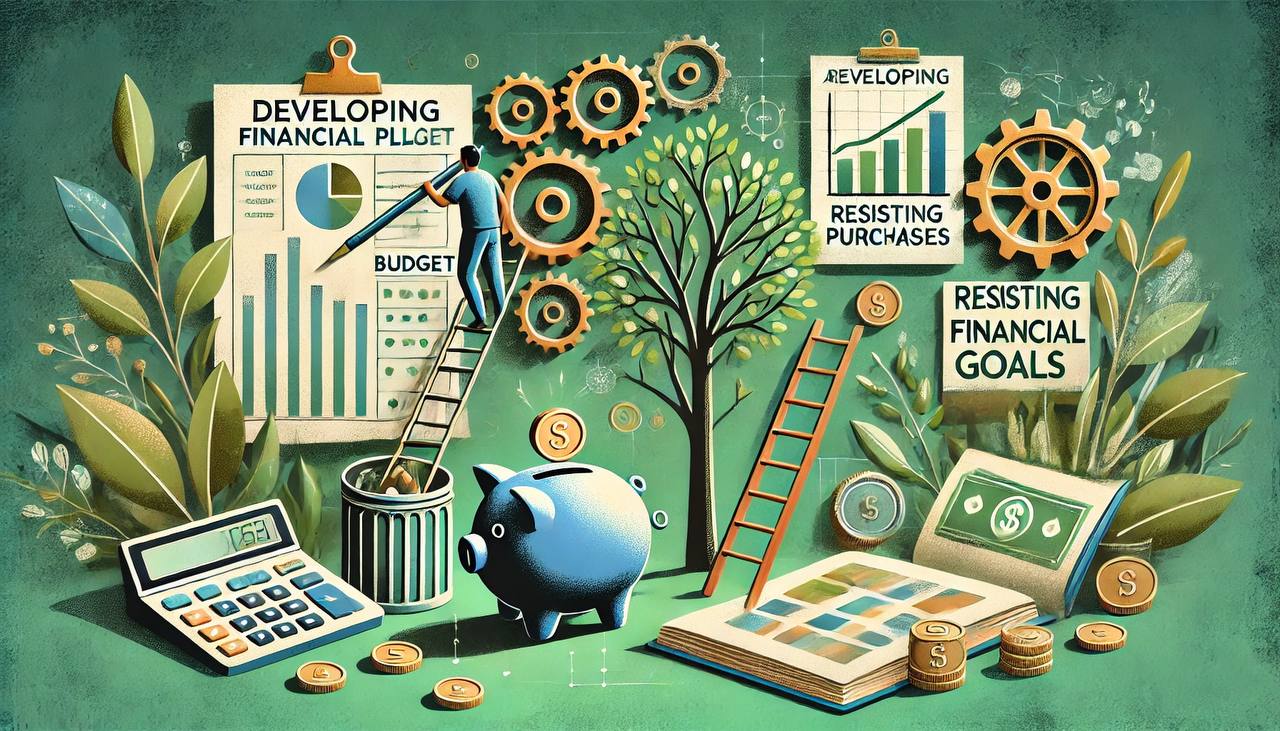Financial discipline is a key element that separates successful people from those who constantly face financial difficulties. The issues of money and its management may seem complicated and confusing to many, but discipline in this area helps to build the right habits and make more conscious decisions. In this article, we’ll explore five effective methods to help you develop financial discipline and achieve stability in managing personal finances.
1. Create a Clear Financial Plan and Budget
The first and probably most obvious step towards financial discipline is to create a clear financial plan. It helps not only to track your income and expenses but also to build long-term goals. Start by tracking all your income and expenses, then categorize them into essential expenses (housing, utilities, food, etc.) and discretionary expenses (entertainment, purchases, etc.).
Next, set limits for each category. For example, for entertainment — no more than 10% of your monthly income, and for savings — at least 20%. This helps you not only control current spending but also save money for the future.
How to use it: There are many budget tracking apps available, such as YNAB, Mint, CoinKeeper, and GoodBudget, which can help you monitor your income and expenses. Simply make it a habit to review your expenses monthly and adjust your plan if necessary.
2. Automate Your Finances
One of the most effective ways to develop financial discipline is to automate money-related processes. Automation helps to minimize the temptation to spend money on unnecessary things and ensures you follow your established financial plan.
For example, set up automatic transfers to your savings account immediately after receiving your salary. This way, the “saved” money will already be set aside, and you won’t have to spend it on unnecessary purchases.
How to use it: Make sure all regular expenses (e.g., utility bills, subscriptions) are automatically deducted from your account. This saves you time and energy since you won’t have to manually track these payments.
3. Set Financial Goals and Deadlines for Achieving Them
Discipline in financial management is closely related to goal-setting. Set clear, measurable, and achievable goals. For example, you can aim to save 100,000 UAH over a year or invest 30% of your income in retirement savings.
A financial goal should be specific, such as: “Save 10,000 UAH each month for travel.” It is also important to set a deadline for achieving that goal. Knowing why you’re working towards something motivates you to keep moving in the right direction, even when you want to splurge on an impulse purchase.
How to use it: Set realistic financial goals, such as “pay off all debts in two years” or “save X amount for a house over the next 5 years.” Write them down, track your progress, and adjust your goals if needed.
4. Control Impulsive Purchases
Impulsive purchases are one of the main obstacles to financial discipline. These spontaneous expenditures often happen when we are not prepared for them or, conversely, when we feel we deserve a reward for life’s challenges.
How to avoid this? Develop a rule: before every purchase, ask yourself: “Do I really need this item? Can I afford this purchase without compromising other goals?”
To maintain control, try implementing a 24-hour rule: wait at least a day before making a purchase, to think it over. Often, during this time, the desire to buy something fades, and you realize it was just a fleeting impulse.
How to use it: Use apps for tracking purchases like Pocketbook, Monefy, or even simple lists on your phone to monitor your expenses. Sometimes it helps to turn off notifications from stores to reduce the temptation to make unnecessary purchases.
5. Continuous Self-Improvement and Financial Education
Never stop learning. Continuous self-education in the financial sphere not only keeps you updated on the latest trends and financial tools but also teaches you new money management methods. Read books on financial planning, attend courses and webinars, and follow podcasts and blogs to stay informed.
Financial discipline also involves regular work on your beliefs and attitude towards money. Sometimes you need to change your perception of finances: money is not just a means for spending, but a tool that can help you achieve freedom and comfort in the future.
How to use it: Make it a habit to spend at least 10-15 minutes daily learning something new about money — whether it’s articles, books, or educational courses. Subscribe to financial blogs or listen to podcasts to deepen your knowledge.
Conclusion
Developing financial discipline is not an instant process, but rather the result of continuous effort and the formation of good habits. Creating a clear budget, automating financial processes, setting goals, and controlling impulsive purchases will all help you take control of your finances and ensure long-term stability. The most important thing is to keep learning, improving, and developing your money management skills. Your financial discipline is your financial future!
Remember, discipline is not about sacrifices and restrictions, but about freedom and mindfulness in decision-making.
